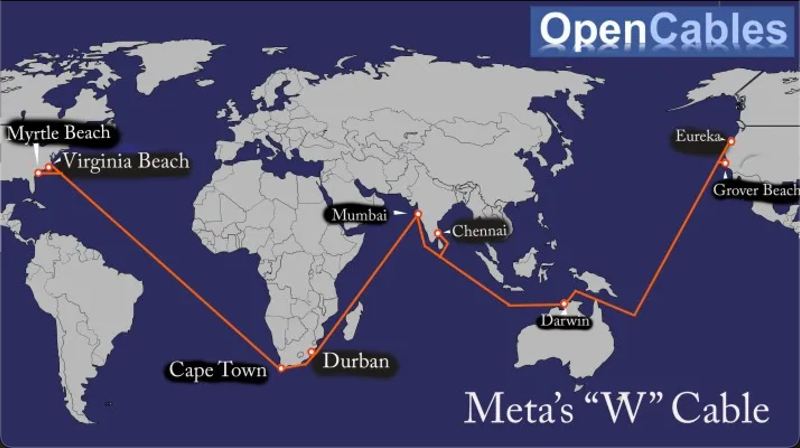In a significant strategic move, Meta, the parent company of social media giants Facebook, Instagram, and WhatsApp, is embarking on a major undersea fiber-optic cable project to enhance its global internet infrastructure. As reported by TechCrunch, Meta’s decision stems from increasing geopolitical tensions and a series of undersea cable sabotage incidents stretching from the Baltics to the Red Sea. By initiating the construction of its own undersea cables, Meta aims to secure its network against potential disruptions while ensuring a stable and expansive bandwidth for its services. Currently, Meta accounts for around 10% of all fixed internet usage and an impressive 22% of mobile traffic worldwide, highlighting its critical role in internet connectivity.
The planned project, estimated to cost $2 billion initially, is expected to grow to around $10 billion as it evolves over the years. This ambitious undersea cable initiative is still in its nascent stages. While specific plans are being developed, physical assets for the project have yet to be established. Insiders suggest that Meta is likely to reveal more concrete details, including the cable’s route and capacity, by early 2025, which will provide clarity about the project’s scope and objectives, alongside justifications for its necessity.
According to industry analysts, the submarine cable installation sector is currently facing a shortage of cable-laying ships due to high demand, resulting in such vessels being booked years in advance. The proposed 25,000-mile cable system will form a “W” shape, starting from the US East Coast, traversing through South Africa to India, and subsequently connecting to the US West Coast via Australia. This design intends to circumvent regions fraught with geopolitical risk, particularly those areas in the Middle East and around the Baltics where previous sabotage occurrences have been reported. As a result, the project reflects Meta’s proactive approach to safeguarding its infrastructure amid rising security concerns.
Historically, Meta has held partial ownership in 16 existing undersea fiber networks. However, this new endeavor enables the tech giant to secure first-rights on capacity to accommodate the continually increasing traffic across its platforms, particularly as they move toward integrating artificial intelligence capabilities. While AI’s role in this project remains uncertain, insiders describe it as one among many long-term considerations as Meta strives to fortify its operational resilience against future contingencies.
The potential realization of this extensive undersea cabling system underscores not only Meta’s aspirations but also its recognition of the growing importance of secure and reliable internet infrastructure. As the company continues to evolve its suite of services, including AI integration, having direct control over its bandwidth resources becomes increasingly crucial. Moreover, the expanded capability may allow Meta to consider offering increased capacity to other users or businesses, marking a shift from purely internal use to a commercial model that could reshape aspects of global internet infrastructure.
In sum, Meta’s pursuit of independent undersea fiber-optic cables signals a strategic pivot towards securing its communication networks amid escalating global tensions. The financial commitment to this long-term project and the innovative network design reflect the company’s intent to maintain its leadership in global internet connectivity. As developments unfold, stakeholders will be keenly watching how Meta plans to navigate this ambitious project while addressing emerging technological demands and geopolitical complexities in the internet landscape.

